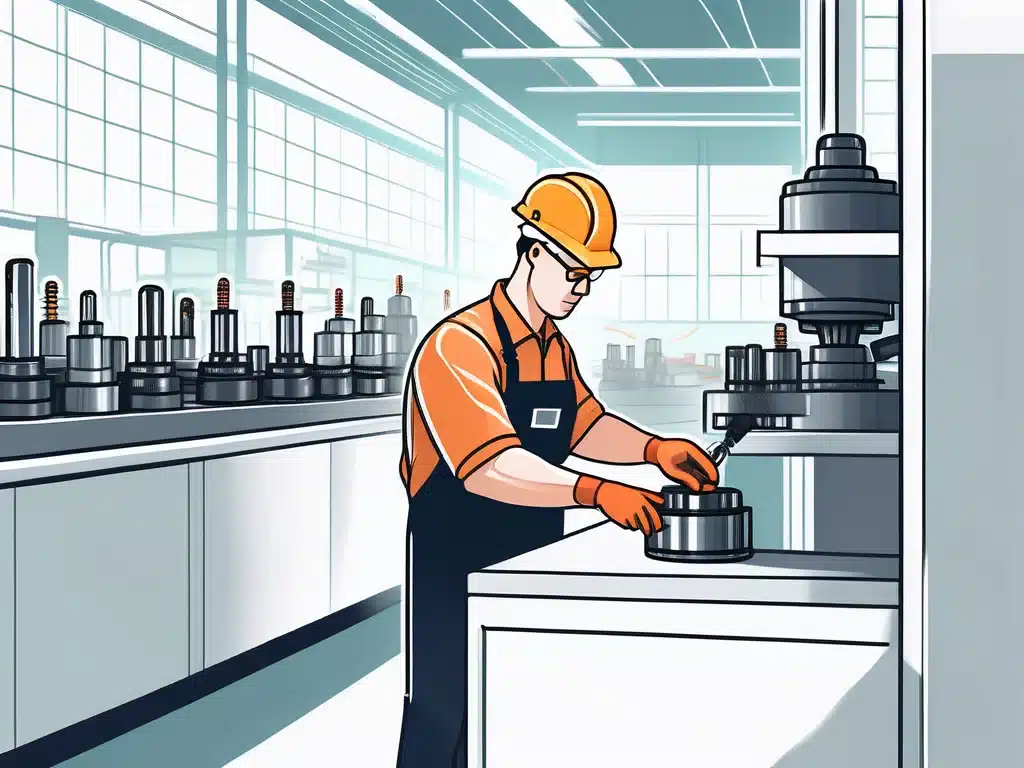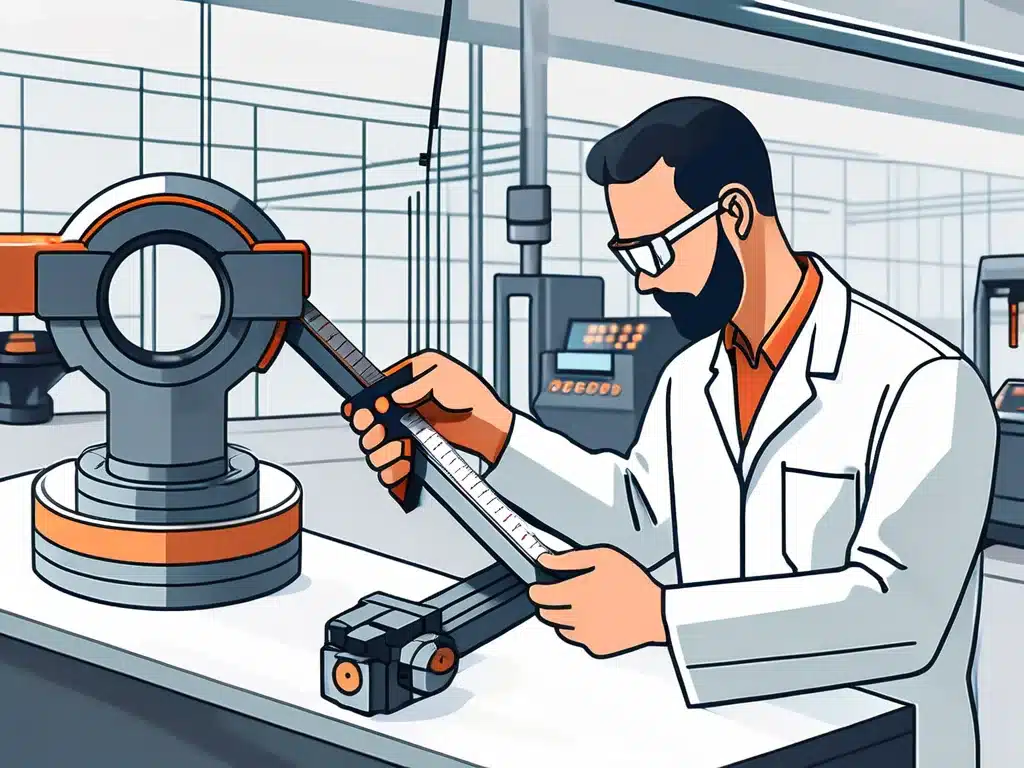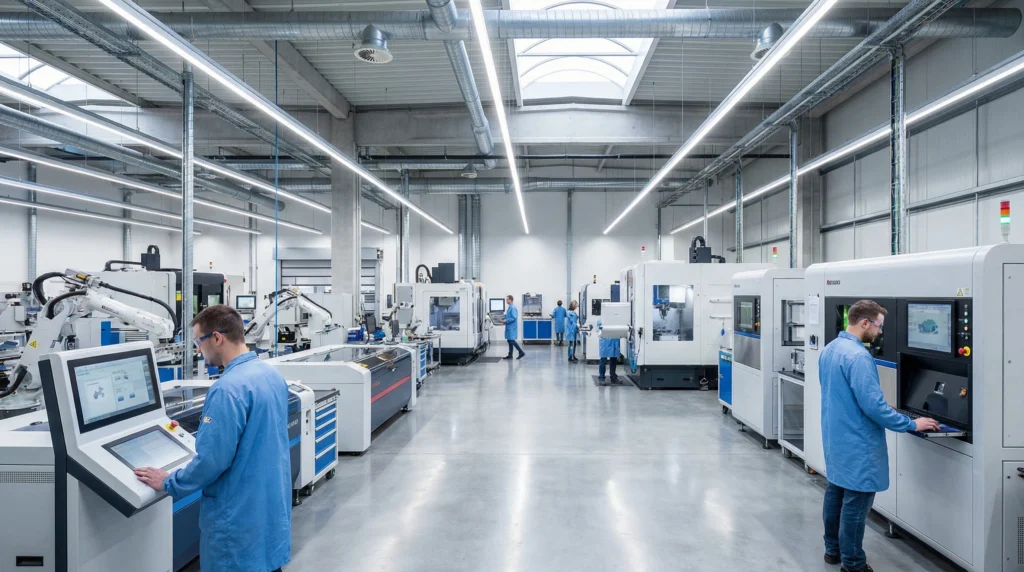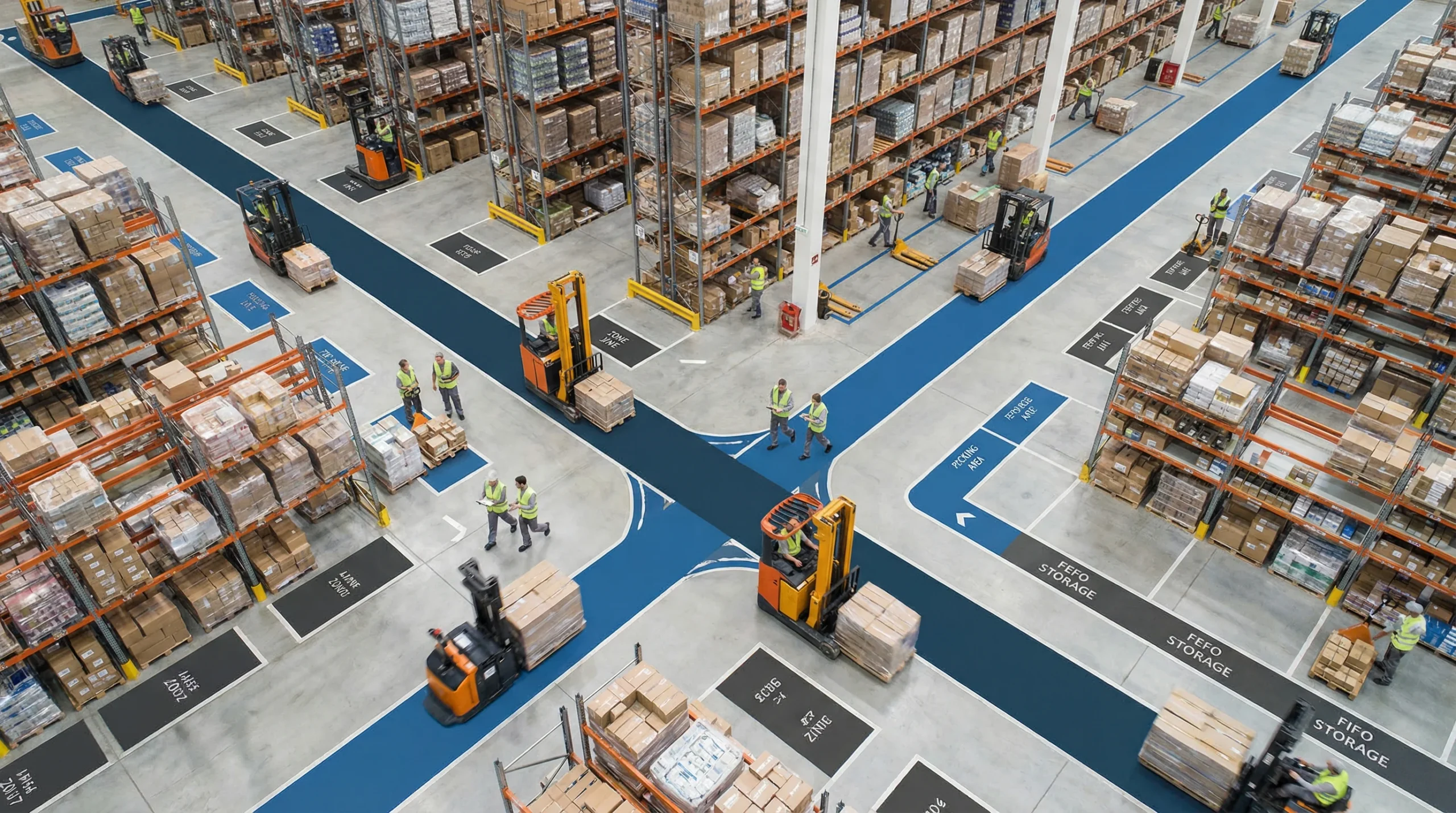manufacturing process. It plays a crucial role in ensuring that the final product meets the required quality standards. By implementing effective shop floor quality control measures, manufacturers can significantly enhance the overall product quality, resulting in improved customer satisfaction and loyalty.Shop floor quality control is an integral part of any
Understanding the Importance of Shop Floor Quality Control
Quality control is a systematic approach employed by manufacturers to monitor and manage the quality of their products. Shop floor quality control refers to the quality control activities performed directly on the manufacturing floor. It involves the inspection and testing of raw materials, as well as in-process and finished goods.

By implementing shop floor quality control, manufacturers can identify and address any potential issues or defects early in the production process. This proactive approach ensures that the final product meets or exceeds customer expectations.
Defining Shop Floor Quality Control
Shop floor quality control encompasses a range of activities, including inspections, testing, and data analysis. These activities aim to identify defects, measure process performance, and improve overall product quality.
Inspections involve visual examinations of parts, components, and finished goods to ensure they meet the predetermined quality standards. Testing, on the other hand, involves the use of specialized equipment or techniques to evaluate the performance and durability of the product.
Data analysis plays a crucial role in shop floor quality control. Manufacturers collect and analyze data to identify patterns and trends, enabling them to make data-driven decisions for process improvement and defect prevention.
The Role of Shop Floor Quality Control in Manufacturing
Shop floor quality control is essential for maintaining consistency and reliability throughout the manufacturing process. It helps manufacturers identify and rectify any deviations from established quality standards.
By continuously monitoring and controlling the quality of products at each stage of production, manufacturers can minimize the risk of defects and ensure that the final product meets customer expectations. This not only enhances customer satisfaction but also reduces rework, waste, and potential product recalls.
Furthermore, shop floor quality control plays a vital role in ensuring compliance with industry regulations and standards. Manufacturers must adhere to specific quality requirements to meet legal obligations and maintain certifications. By implementing robust quality control measures, manufacturers can demonstrate their commitment to producing safe and reliable products.
Another significant aspect of shop floor quality control is its impact on cost reduction. By identifying and addressing quality issues early on, manufacturers can avoid costly rework and scrap. Additionally, effective quality control measures can improve production efficiency, reducing cycle times and optimizing resources.
Take Control of Your Shop Floor
From production scheduling to quality control, ASCTrac MES gives manufacturers the tools to optimize every step.
Request a Demo
Key Elements of Effective Shop Floor Quality Control
Effective shop floor quality control requires the implementation of various key elements. These elements ensure that the quality control process is comprehensive, consistent, and capable of producing high-quality products consistently.

Implementing Inspection and Testing Procedures
Inspection and testing procedures are crucial components of shop floor quality control. Manufacturers must establish clear and standardized inspection and testing protocols to ensure consistent evaluation of product quality.
Regular inspections help identify any defects or deviations from the required standards, allowing manufacturers to take corrective actions promptly. Testing procedures, such as performance tests or material analysis, provide valuable insights into the product’s functionality and durability.
For example, in the automotive industry, manufacturers conduct rigorous crash tests to assess the safety performance of vehicles. These tests simulate real-life accidents and evaluate the structural integrity and effectiveness of safety features. By subjecting their products to such comprehensive testing, manufacturers can ensure that their vehicles meet the highest safety standards.
By implementing robust inspection and testing procedures, manufacturers can improve process control, reduce defect rates, and enhance overall product quality.
Utilizing Quality Control Tools and Techniques
Quality control tools and techniques are essential for analyzing data, identifying trends, and making informed decisions to enhance product quality.
Statistical process control (SPC) techniques, such as control charts and process capability analysis, help monitor and control process variations. These tools enable manufacturers to identify potential issues or deviations before they result in defects or non-conformities.
Moreover, advanced technologies like artificial intelligence (AI) and machine learning (ML) are revolutionizing quality control processes. AI-powered systems can analyze vast amounts of data in real-time, detecting patterns and anomalies that human operators might miss. This technology allows manufacturers to detect quality issues early on and take proactive measures to prevent defects.
Other quality control tools, such as fishbone diagrams, Pareto charts, and 5 Whys analysis, facilitate problem-solving and root cause analysis, leading to effective solutions for quality improvement.
For instance, in the food industry, if a manufacturer detects a higher-than-acceptable level of contaminants in their products, they can use a fishbone diagram to identify potential causes such as equipment malfunction, improper handling, or inadequate cleaning procedures. By addressing the root cause, they can prevent contamination and ensure the production of safe and high-quality food products.
By utilizing these tools and techniques, manufacturers can proactively identify areas for improvement and implement corrective actions, ultimately enhancing product quality.
The Impact of Shop Floor Quality Control on Product Quality
Shop floor quality control has a significant impact on product quality. By implementing effective quality control measures, manufacturers can improve various aspects of their products.
Quality control on the shop floor involves a systematic approach to ensuring that products meet specific standards of quality. This process includes monitoring and evaluating every stage of production, from raw material inspection to final product testing.
Improving Product Consistency
Consistency is vital for product quality. By controlling and monitoring the manufacturing process closely, manufacturers can ensure that each product meets the same quality standards.
Consistent products build trust among customers, as they know what to expect from the brand. A reliable and predictable product quality allows customers to make informed buying decisions.
Moreover, maintaining product consistency also helps in establishing a strong brand reputation in the market. When customers consistently receive high-quality products, they are more likely to become loyal to the brand and recommend it to others, leading to increased sales and market share.
Reducing Product Defects and Failures
One of the primary objectives of shop floor quality control is to reduce product defects and failures. By identifying and addressing potential quality issues early in the manufacturing process, manufacturers can prevent defective products from reaching customers.
This helps in minimizing product returns, warranty claims, and customer complaints. Additionally, it saves costs associated with rework, repairs, or scrap.
Furthermore, reducing product defects not only benefits the customers but also enhances the overall efficiency of the manufacturing process. By streamlining operations and focusing on quality improvement, manufacturers can increase productivity, reduce waste, and ultimately boost profitability.
Overcoming Challenges in Shop Floor Quality Control
Though shop floor quality control offers numerous benefits, manufacturers often face specific challenges that hinder its effective implementation. From addressing human error to managing quality control costs, there are various aspects that require attention to ensure optimal quality standards are met.
Addressing Human Error in Quality Control
Human error can significantly impact quality control processes, leading to lower product quality. To mitigate this risk, manufacturers must invest in proper training and education for quality control personnel.
Implementing clear work instructions, standard operating procedures (SOPs), and quality control checklists can help reduce human error. Regular performance evaluations and feedback sessions are also essential for fostering a culture of quality and continuous improvement. Moreover, incorporating advanced technologies such as artificial intelligence and machine learning can assist in automating certain quality control tasks, minimizing the reliance on manual processes and reducing the likelihood of human error.
Managing Quality Control Costs
Quality control activities can be costly. Manufacturers need to strike a balance between the cost of quality control and the benefits it provides.
By implementing automated inspection and testing systems, manufacturers can reduce manual labor and associated costs. Additionally, implementing lean manufacturing principles and waste reduction techniques can contribute to overall cost savings in quality control. Furthermore, conducting thorough cost-benefit analyses and investing in long-term quality control strategies can help manufacturers optimize their spending while ensuring product quality remains uncompromised.
Future Trends in Shop Floor Quality Control
The field of shop floor quality control continues to evolve, driven by technological advancements and changing customer expectations.

The Role of Technology in Quality Control
Technology plays a significant role in enhancing shop floor quality control. Automation and digitization of quality control processes enable real-time monitoring, data analysis, and immediate corrective actions.
One emerging technology that is revolutionizing quality control is artificial intelligence (AI). AI algorithms can analyze vast amounts of data and identify patterns that humans may miss, leading to more accurate and efficient quality control processes. Machine learning, a subset of AI, allows quality control systems to continuously improve and adapt based on new data, ensuring consistent product quality.
In addition to AI, robotics is also transforming shop floor quality control. Robots can perform repetitive and precise tasks with high accuracy, reducing human error and increasing efficiency. They can be programmed to conduct quality inspections, measure product dimensions, and even perform complex assembly tasks. This integration of robotics into quality control processes not only improves accuracy but also frees up human workers to focus on more complex and value-added tasks.
Sustainable Practices in Shop Floor Quality Control
Sustainability is becoming a crucial consideration for manufacturers. Shop floor quality control can contribute to sustainable practices by reducing waste, optimizing energy consumption, and minimizing environmental impact.
One way manufacturers are embracing sustainability is through the use of eco-friendly materials. These materials are sourced from renewable resources and have a lower environmental impact compared to traditional materials. By incorporating these materials into their products, manufacturers can not only reduce their carbon footprint but also meet the growing demand for sustainable products from environmentally-conscious consumers.
Another sustainable practice in shop floor quality control is the implementation of recycling programs. By collecting and recycling waste materials generated during the manufacturing process, manufacturers can minimize landfill waste and conserve natural resources. This not only benefits the environment but also reduces costs associated with waste disposal.
Furthermore, optimizing production processes can also contribute to sustainability. By streamlining operations and reducing energy consumption, manufacturers can minimize their environmental impact. This can be achieved through the use of energy-efficient machinery, implementing lean manufacturing principles, and adopting sustainable manufacturing practices.
In conclusion, shop floor quality control is instrumental in enhancing product quality. By understanding its importance, implementing effective measures, and continuously improving the process, manufacturers can deliver high-quality products that meet customer expectations. With the continuous advancements in technology, such as AI and robotics, and the focus on sustainability, the future of shop floor quality control looks promising. Embracing these trends will not only drive business success but also contribute to a more sustainable and environmentally-friendly manufacturing industry.
Frequently Asked Questions
What is shop floor quality control?
Shop floor quality control encompasses activities that ensure products meet specifications during production. It includes in-process inspections, statistical process control, and operator quality checks. The goal is detecting and correcting problems at the source rather than finding defects after completion, reducing scrap, rework, and customer complaints.
How does quality control integrate with shop floor operations?
Integration embeds quality checks into production workflows rather than treating inspection as separate. Operators verify their own work at defined checkpoints. Automated systems collect measurements during processing. Quality alerts stop production when parameters drift outside limits. This integration catches problems immediately when correction costs are lowest.
What is statistical process control on the shop floor?
Statistical process control uses data analysis to monitor process stability and capability. Control charts track measurements over time, distinguishing normal variation from signals requiring action. SPC enables prediction and prevention of defects rather than detection after the fact. Operators trained in SPC can maintain quality without constant supervisor oversight.
How does shop floor control support quality traceability?
Shop floor control systems record which materials, equipment settings, operators, and environmental conditions were involved in producing each item. This traceability enables investigation when quality problems occur, identification of affected products for containment, and demonstration of process control for regulatory compliance or customer audits.
What are best practices for shop floor quality management?
Best practices include defining clear quality standards, training operators on inspection methods, and providing immediate feedback on results. Implement mistake-proofing devices that prevent errors. Address quality issues as they occur rather than batching problems. Analyze defect patterns to identify root causes and implement permanent countermeasures.




